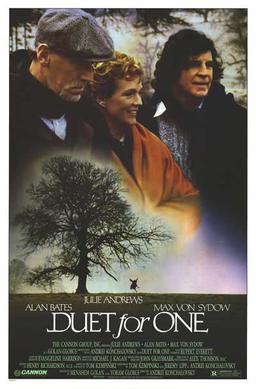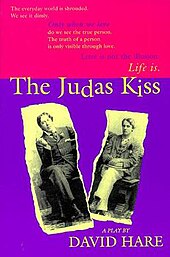
The Importance of Being Earnest, a Trivial Comedy for Serious People is a play by Oscar Wilde, the last of his four drawing-room plays, following Lady Windermere's Fan (1892), A Woman of No Importance (1893) and An Ideal Husband (1895). First performed on 14 February 1895 at the St James's Theatre in London, it is a farcical comedy depicting the tangled affairs of two young men about town who lead double lives to evade unwanted social obligations, both assuming the name Ernest while wooing the two young women of their affections.

William John Neeson is a Northern Irish actor. He has received several accolades, including nominations for an Academy Award, a BAFTA Award, three Golden Globe Awards, and two Tony Awards. In 2020, he was placed seventh on The Irish Times list of Ireland's 50 Greatest Film Actors. Neeson was appointed Officer of the Order of the British Empire (OBE) in 2000.

Lord Alfred Bruce Douglas, also known as Bosie Douglas, was an English poet and journalist, and a lover of Oscar Wilde. At Oxford University he edited an undergraduate journal, The Spirit Lamp, that carried a homoerotic subtext, and met Wilde, starting a close but stormy relationship. Douglas's father, John Douglas, 9th Marquess of Queensberry, abhorred it and set out to humiliate Wilde, publicly accusing him of homosexuality. Wilde sued him for criminal libel, but some intimate notes were found and Wilde was later imprisoned. On his release, he briefly lived with Douglas in Naples, but they had separated by the time Wilde died in 1900. Douglas married a poet, Olive Custance, in 1902 and had a son, Raymond.

Rupert James Hector Everett is a British actor. He first came to public attention in 1981 when he was cast in Julian Mitchell's play and subsequent film Another Country (1984) as a gay pupil at an English public school in the 1930s; the role earned him his first BAFTA Award nomination. He received a second BAFTA nomination and his first Golden Globe Award nomination for his role in My Best Friend's Wedding (1997), followed by a second Golden Globe nomination for An Ideal Husband (1999). He voiced Prince Charming in two Shrek films: Shrek 2 (2004) and Shrek the Third (2007). He also played John Lamont/Mr. Barron in Miss Peregrine's Home for Peculiar Children (2016).

Sweet Charity is a musical with music by Cy Coleman, lyrics by Dorothy Fields and book by Neil Simon. It was directed and choreographed for Broadway by Bob Fosse starring his wife and muse Gwen Verdon alongside John McMartin. It is based on the screenplay for the 1957 Italian film Nights of Cabiria. However, whereas Federico Fellini's black-and-white film concerns the romantic ups-and-downs of an ever-hopeful prostitute, in the musical the central character is a dancer-for-hire at a Times Square dance hall. The musical premiered on Broadway in 1966, where it was nominated for nine Tony Awards, winning the Tony Award for Best Choreography. The production also ran in the West End as well as having revivals and international productions.

Sir David Rippon Hare is an English playwright, screenwriter and theatre director. Best known for his stage work, Hare has also enjoyed great success with films, receiving two Academy Award nominations for Best Adapted Screenplay for writing The Hoursin 2002 and The Reader in 2008.

Natasha Jane Richardson was an English and American actress. A member of the Redgrave family, Richardson was the daughter of actress Vanessa Redgrave and director/producer Tony Richardson and the granddaughter of Michael Redgrave and Rachel Kempson. Richardson met future husband, Liam Neeson, in 1991 while filming Shining Through.

Samantha Jane Bond is an English actress. She played Miss Moneypenny in four James Bond films during the Pierce Brosnan era, and appeared in Downton Abbey as the wealthy widow Lady Rosamund Painswick, sister of Robert Crawley, the Earl of Grantham. On television, she played "Auntie Angela" in the sitcom Outnumbered and the villain Mrs Wormwood in the CBBC Doctor Who spin-off, The Sarah Jane Adventures. She also originated the role of "Miz Liz" Probert in the Rumpole of the Bailey series. She is a member of the Royal Shakespeare Company.
Sir Richard Charles Hastings Eyre is an English film, theatre, television and opera director. Eyre has received numerous accolades including three Laurence Olivier Awards as well as nominations for six BAFTA Awards and two Tony Awards. He was appointed a Commander of the Order of the British Empire (CBE) in the 1992 News Year Honours, and knighted in the 1997 New Year Honours.

Duet for One is a 1986 British drama film adapted from the play, a two-hander by Tom Kempinski, about a world-famous concert violinist named Stephanie Anderson who is suddenly struck with multiple sclerosis. It is set in London, and directed by Andrei Konchalovsky. The story was, at the time of the premiere of the play, assumed to be based on the life of cellist Jacqueline du Pré, who was diagnosed with MS, and her husband, conductor Daniel Barenboim, but Kempinski has stated that the subject of the play was a cathartic explosion of his own anxieties and depression.
Douglas William Hodge is an English actor, director and musician. He has had an extensive career in theatre, as well as film and television where he has appeared in Robin Hood (2010), Legends of Oz: Dorothy's Return and Diana, Penny Dreadful (2016), Catastrophe (2018), Joker and Lost in Space, and The Great (2020–2023).
Alexander Harald St John Hanson is a Norwegian-English stage actor who has appeared in numerous plays and musicals in the West End, and also on Broadway.
Stephen Adly Guirgis is an American playwright, screenwriter, director, and actor. He is a member and a former co-artistic director of New York City's LAByrinth Theater Company. His plays have been produced both Off-Broadway and on Broadway, as well as in the UK. His play Between Riverside and Crazy won the 2015 Pulitzer Prize for Drama.

Rupert Goold is an English director who works primarily in theatre. He is the artistic director of the Almeida Theatre, and was the artistic director of Headlong Theatre Company (2005–2013). Since 2010, Goold has been an associate director at the Royal Shakespeare Company. He was appointed Commander of the Order of the British Empire (CBE) in the 2017 for services to drama.
Michael John Rupert is an American actor, singer, director and composer. In 1968, he made his Broadway debut in The Happy Time as Bibi Bonnard for which he received a Tony Award nomination and the Theater World Award. Later, he starred as the title role in Pippin for three years on Broadway starting in 1974. He originated the role of Marvin in the William Finn musicals March of the Falsettos, Falsettoland and Falsettos. In 2007, he originated the role of Professor Callahan in the Broadway cast of Legally Blonde. Rupert has been the nominee and recipient of several Tony and Drama Desk awards. He won a Tony for his performance in Sweet Charity in 1986.
Oscar Wilde's life and death have generated numerous biographies.

Frederick Samson Robert Morice Fox is an English film and stage actor. His prominent screen performances include roles as singer Marilyn in the BBC's Boy George biopic Worried About the Boy (2010), Freddie Baxter in series Cucumber (2015) and Banana (2015), and Jeremy Bamber in White House Farm (2020).

Ben Hardy is an English actor. He is known for playing Peter Beale in the BBC soap opera EastEnders (2013–2015). Hardy made his film debut as Archangel in the superhero film X-Men: Apocalypse (2016) and played Roger Taylor in the biographical film Bohemian Rhapsody (2018).

The Happy Prince is a 2018 biographical drama film about Oscar Wilde, written and directed by Rupert Everett in his directorial debut. The film stars Everett, Colin Firth, Colin Morgan, Emily Watson, Edwin Thomas and Tom Wilkinson. It premiered at the 2018 Sundance Film Festival, and was shown at the 2018 BFI Flare: London LGBT Film Festival. At the 9th Magritte Awards, it received a nomination in the category of Best Foreign Film.












